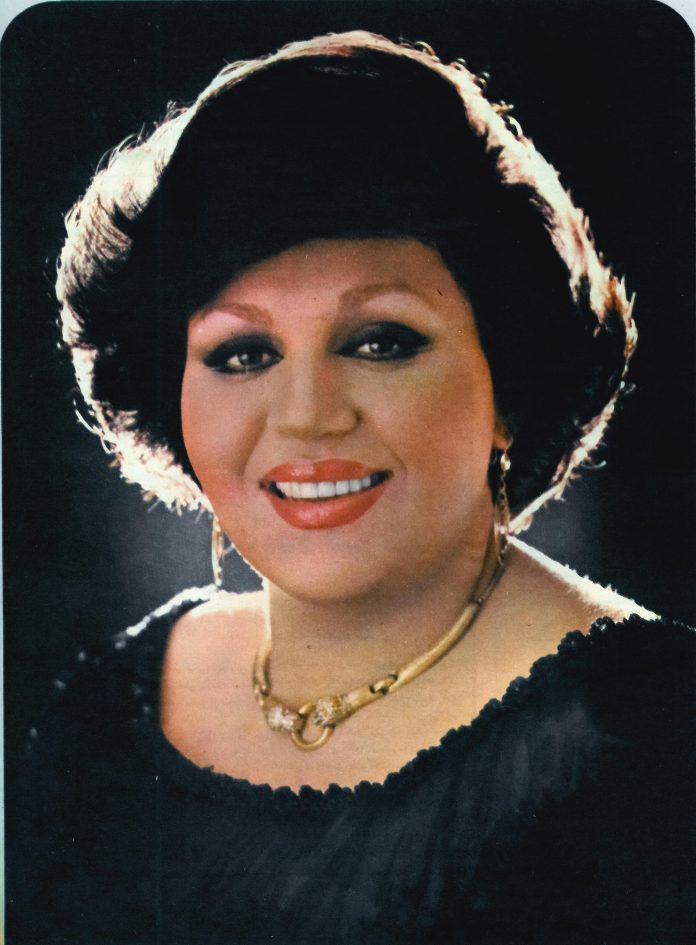On this day in 1990, Iranian beloved vocalist, Masoumeh Dadebala, known as Haydeh died of a heart attack, shortly after a live performance in San Francisco.
Haydeh, like many singers, was forced to interrupt her burgeoning career and learn to survive in exile. Navigating the hardships of life in a foreign land, the sudden overhaul of her homeland by a government that treated female musicians as corrupt criminals, Haydeh and her adoring fans had to find new platforms to experience music.
In exile, Haydeh was filled with accounts of loss, homesickness and heartbreak.
Haydeh was adored, her voice was longed for. But her music was now banned in Iran and her exiled audiences struggled to find disposable funds for music and entertainment. Producers and hosts struggled to find their own footing in the industry.
Yet, Hayden’s music resonated and captured the collective struggles and grief shared by Iranian émigrés and her fellow Iranians clandestinely listening to smuggled tapes in Iran. Songs like Faryad, Zendegi, and Masti were companions of a people who had suffered so much loss.
On January 20, 1990, Haydeh was performing at the Casablanca Club in San Francisco area— a humble venue far from the glamorous concert halls of Iran where she was once greeted by hundreds of fans dressed in their designer attires. Her performance was heartfelt, her music resonant.
But later that night, Haydeh suffered a heart attack that ended her life. The news of her death reverberated echoes of sadness among her fans and Iranians around the world. Her death was a reminder of the fragility of life in exile and the shared unspoken fears.
Thirty three years after her death, Haydeh’s music not only represents a chapter in Iranian history, but remains an inspiration and source of hope. Amid bloodshed and violence in the streets of Iran, the chants of Zan. Zendegi. Azadi still fill the atmosphere of streets. A new generation of artists and musicians such as Shervin Hajipour and Toomaj Salehi are using their platforms to call for the most basic rights of Iranians. While the regime applies every powerful tool to suppress and silence such voices, the melodies and messages conjure a life of their own and echo beyond prison walls and internet filters.
As we commemorate Haydeh’s passing and fight for a free Iran, we are stronger with the melodies and lyrics that have united us and sustained our spirits throughout the generations. They are a reminder that the magic of music can not be extinguished.
[aesop_image img=”https://kayhanlife.com/wp-content/uploads/2023/01/haydeh23-scaled.jpg” panorama=”off” credit=”Haydeh, Iran’s Eternal Goddess of Music. Sepehr jamshidi, Wikimedia Commons./ ” align=”center” lightbox=”off” captionsrc=”custom” captionposition=”left” revealfx=”off” overlay_revealfx=”off”]


